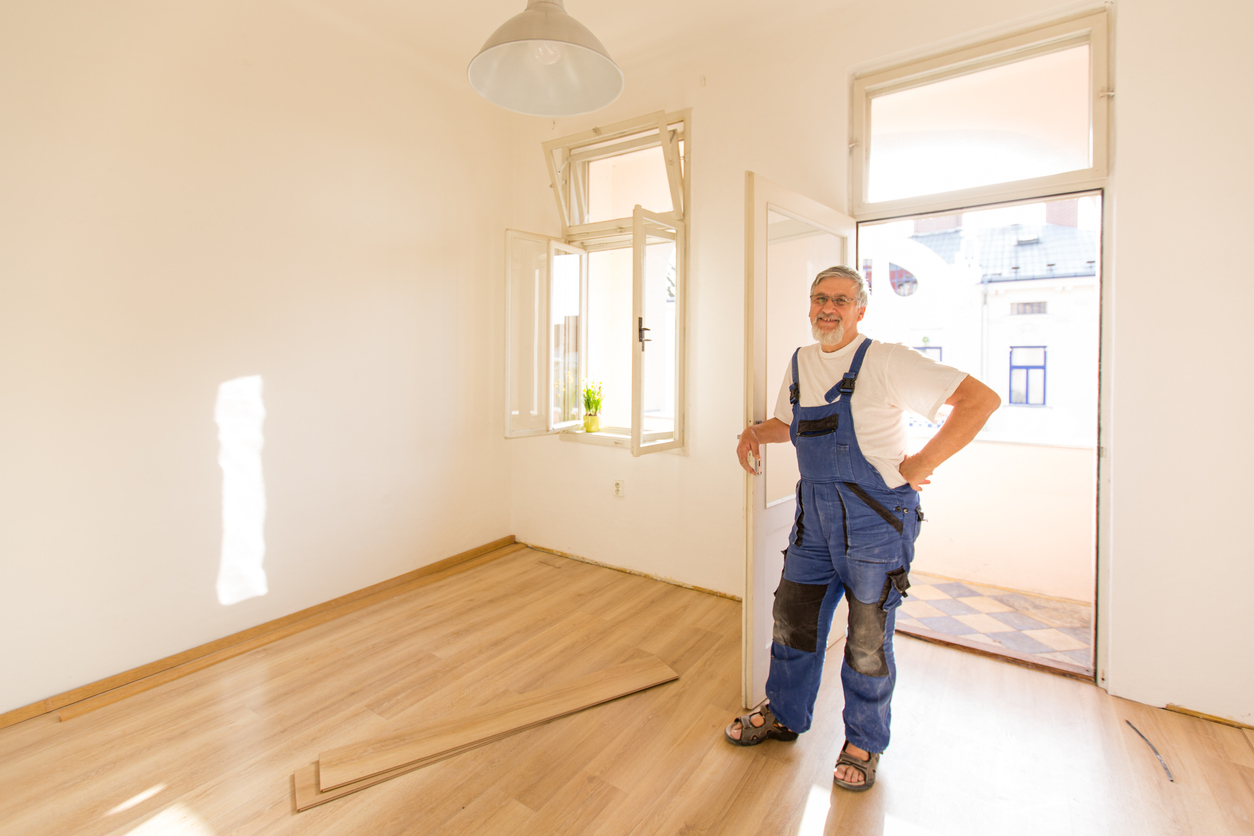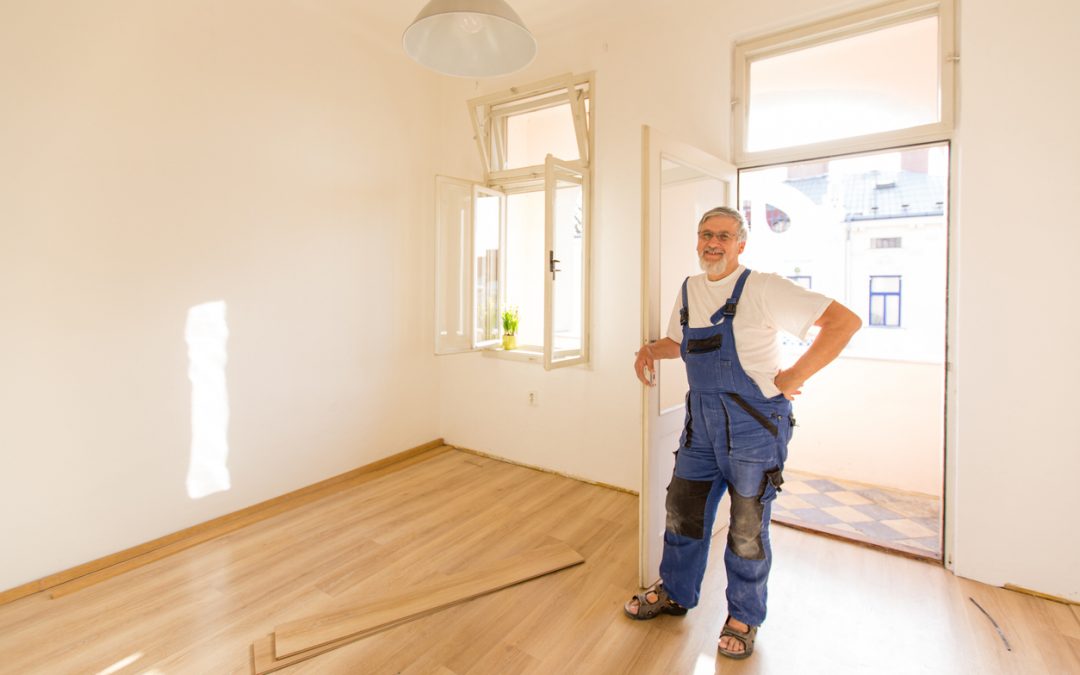
The great retirement trade-off
The start of a new year is often the time when we plan to make changes to our homes – to buy, sell or renovate.
Renovating was almost a national pastime this past year when Covid forced more of us to spend more time at home, up close to any flaws or malfunctions that might have bothered us for a while. This week we look at the pros and cons of renovating for retirees. It’s not a straightforward discussion. There is no ‘right’ answer, or mathematical solution. That’s because:
- our connection with our homes is emotional as well as physical,
- design and functionality can either enhance or reduce our longevity and
- when we spend on our homes we can increase or decrease our net worth.
So there’s a lot to think about.
Maybe you’ve lived in a capital city for many years, in a median priced 3-bedroom home that has served you and your family well.
You’re now an empty nester and have considered downsizing, but still love your neighbourhood, community and the many local services you’ve depended upon over the years; the hairdresser, doctor, green grocer and corner cafe.
But your home is a little tired looking and with cash in a Term Deposit earning not much at all, it’s tempting to spend some money on a ‘refresh’ which might include a range of improvements that save you money, make day-to-day living easier and perhaps takes advantage of technologies that didn’t exist when you first moved in.
So how do you go about deciding if the, say $70,000 renovation, is both affordable and a smart use of your savings?
Let’s work through each of the above considerations, in an order that may surprise you.
Firstly, let’s talk emotion, rather than money
Are you living where you live because, to date, it has been affordable, but more so because you are part of this place, this community that has shaped your recent history? Maybe lockdowns revealed to you just how important this neighbourhood is to you? There is no way of measuring this connection. But it is probably the most important consideration of all. You like where you live. You may even love it. And you want to be here a while longer. So that leads to a decision not to move. Instead, we can now consider the physical aspects of home ownership.
Creating a forever home
If you haven’t renovated for a while, it is highly likely that there are innovations that could make your home more liveable for a much longer time. In the housing industry, this is often referred to as creating a ‘forever’ home. This means you can incorporate many things that ensure your home is accessible and supportive as you age, even if you lose a degree of mobility. Some such upgrades are actually free of charge through ageing-in-place home care packages. Others you will need to fund yourself. But it is entirely possible that you could add years to your (active) life, by minimising falls, providing support grips where needed and taking advantage of supportive technologies so you are connected to others 24/7.
Financial considerations
We’ve looked at the less tangible aspects of renovation – now for the financial pros and cons. And there is a lot to think about here. Let’s extend the example of someone in a median priced home in, say, Brisbane. Let’s assume this is a single female, Anna, with adult children and grandchildren who visit frequently. Her home is worth, $1.1 million, it is mortgage-free and she is on a part Age Pension based upon the assets test.
What should Anna think about if she would like to upgrade her home?
Before anything else, a useful starting point is to get a trustworthy valuation. Emotion often clouds our judgement and it is helpful to know a realistic sale price.
With this in mind, Anna will have a better idea if spending that $70,000 is going to add just that amount, or more to her asset value.
One of the main features of the Age Pension is that the family home is exempt from any Assets Test. So is money spent on the home. So by spending this money on improvements, Anna will have reduced her assessable assets by $70,000 – which can mean many thousands in increased Age Pension entitlements. In this example, it would be an extra $5,460 per annum. Do your own sums here to check if spending on renovations improves your pension eligibility or payments. You can use our free eligibility calculator to test the impact of having money in your bank account versus in your home on your age pension entitlements.
Financial commentators often note that the homeowner will then be that amount ($70,000) worse off. But this is a rather limited way of viewing the financial outcome. Anna’s house is now worth a minimum of $1.17 million, probably more, as the cost of the renovation tends to translate into a price increase higher than the raw costs. Anna has foregone the interest on this money as an income stream, but the increased pension could be more than this interest (e.g. $1750 per annum if interest rate is .025%). Added to higher capital value, on paper, Anna may be better off.
There are assumptions in here – one of the main ones is that Anna does not overpay for renovations and that she is not overcapitalising on a home where the extra investment will not be recouped.
Other financial benefits are that energy bills can be lowered through smart technologies, newer appliances and fittings such as solar panels and water tanks.
Of course these considerations would be different if Anna had a mortgage, as paying that down before renovating might be a better course of action. Seeking professional advice is a logical next step.
There are a couple of other things to remember.
Doing renovations that increase the value of your home and lower your bills is not ‘spending’ money in a consumer sense. It is investing in your primary asset. So thinking more broadly about the benefits a renovation might bring, rather than narrowing it to cash-flow imperatives is useful.
For some retirees, the financial aspects of renovation are both complex and exhausting. If you would like to speak to a qualified and independent adviser about the pros and cons of your property options, why not book a consultation today?
This article is provided by Retirement Essentials Representative Number: 001260855. We are an authorised representative of SuperEd Pty Ltd ABN 88 118 480 907 AFSL #468859. This information is not intended as financial product advice, legal advice or taxation advice. It does not take into account your personal situation, goals or needs and you should assess your own financial situation, consider if the information is suitable for you and ensure you read the relevant Product Disclosure Statement (PDS) if you choose to make any changes to your financial situation. It is always advisable to consult a financial adviser before making financial decisions.






As an alternative to renovating and prior to applying for the aged pension is it possible to sell your house (principal residence) and then put most of your assets into buying a new house (principal residence) with a view to then applying for and qualifying for at least a minimum $1 of the couples aged pension entitlement?
Hi Thadius, you can consider this approach also. Centrelink assess you as of the day you apply moving forward so upgrading your house in the lead up to applying is definitely an option. For anyone reading this who is already on the pension and considering selling then building/buying again, Centrelink will give you a 12 month exemption on the proceeds from your sale to give you time to buy/build without losing the pension in between.